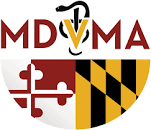2025 Mid-Atlantic States Conference
for Bovine Practitioners
Speakers
Hilton Garden Inn - Frederick, MD
March 27-28
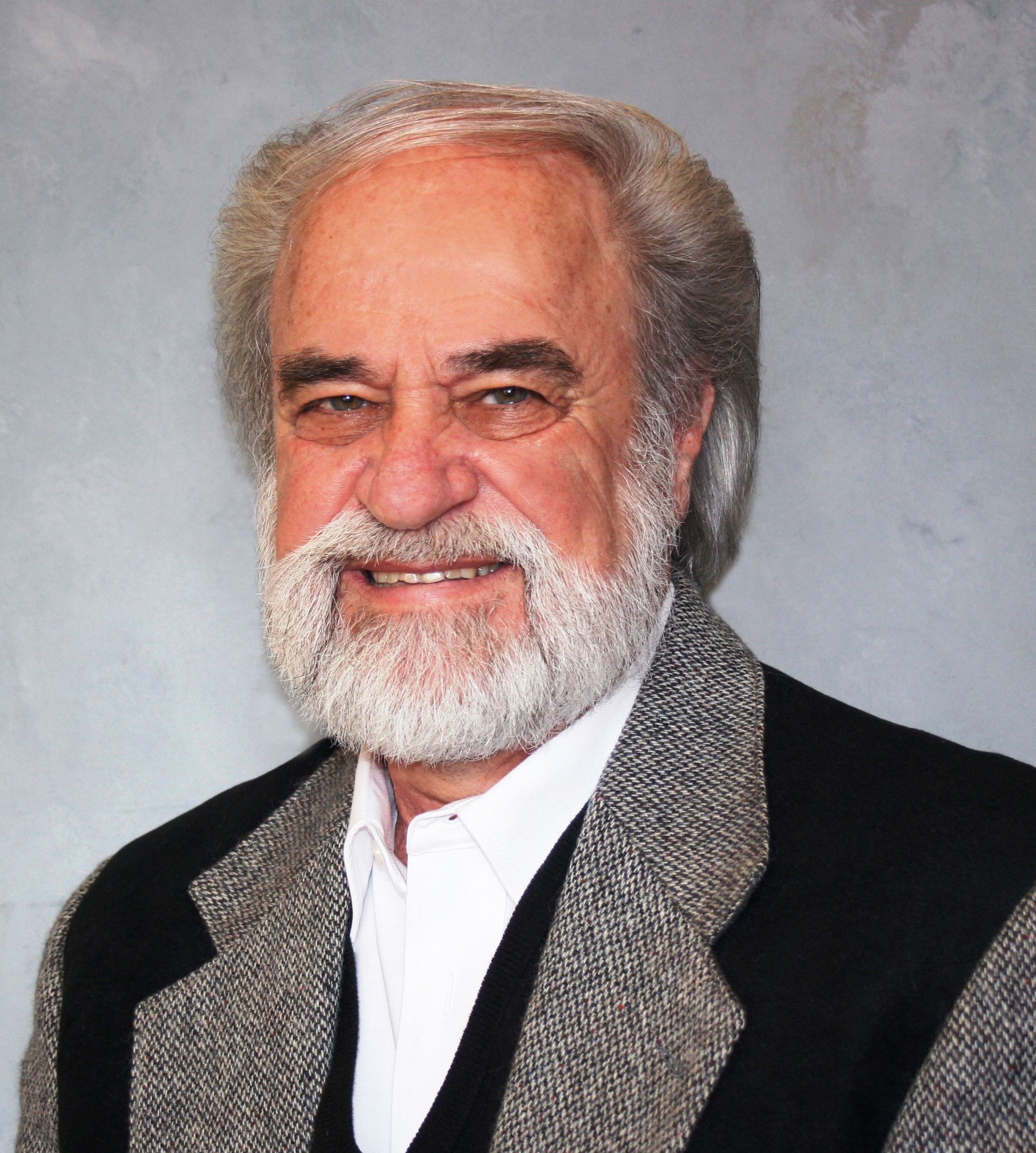
J. K. Shearer, DVM, MS
Iowa State University
Session Description
Ensuring Humane Euthanasia in Ruminants
This session will emphasize 1) accurate placement for entry of a captive bolt or bullet (in the case of a firearm) and 2) understanding of the physical indicators of unconsciousness (in ruminants) when the physical methods (i.e. captive bolt and firearms) of euthanasia are used. It is essential to ensure unconsciousness prior to the use of a secondary (adjunctive) step to ensure death.
Lameness in Dairy Cattle – How Important is Nutrition?
The answer is … less than previously believed. ¬Current thinking based upon evidence based understanding is that claw lesions are an environment associated mechanical/pressure induced diseases.
Test your Knowledge of Common Lameness Conditions
An interactive session where a series of lameness conditions will be presented – audience participants will be asked to name the condition, recommend a treatment, and suggest a prognosis.
Speaker Bio
Dr. Shearer received his Bachelor’s degree from Ashland University in 1971 and veterinary degree from The Ohio State University in 1975. He served 5 years as an Associate Veterinarian with the Orrville Clinic, Inc., in Orrville, Ohio, before returning to The Ohio State University to pursue graduate studies in nutrition and immunology. He became an Assistant Professor in the Department of Veterinary Preventive Medicine at The Ohio State University before moving to the University of Florida to become Professor and Dairy Extension Veterinarian in 1982. After 27 years with the University of Florida, he accepted his current position at Iowa State University as Professor and Dairy Extension Veterinarian. Dr. Shearer’s primary areas of research interest are bovine lameness, euthanasia, and welfare issues of beef and dairy cattle.
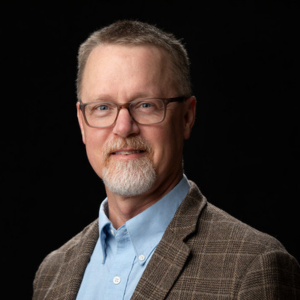
Paul M. Fricke, Ph.D.
University of Wisconsin - Madison
Session Description
Repro Concepts Review
Dr. Fricke will review the underlying physiological and endocrinological problems presented by high-producing dairy cows that limit reproductive performance.
The High Fertility Cycle
Dr. Fricke will give an overview of the High Fertility Cycle and how change in body condition score during the periparturient period affects subsequent health events and reproductive performance in high-producing dairy cows.
Where's the Beef?
Dr. Fricke will discuss how to optimize the use of sexed and beef semen in lactating dairy cows and dairy heifers and will discuss new data on transfer of IVP beef embryos in lactating Jersey cows.
Speaker Bio
Dr. Paul Fricke was raised on his family's row crop and dairy farm located near Papillion, Nebraska where his father continues to farm today. After receiving a B.S. degree in Animal Science in 1988 from the University of Nebraska, Paul went on to complete a M.S. degree in 1992 and a Ph.D. degree in 1996 in Reproductive Physiology from the department of Animal Sciences at North Dakota State University. Paul joined the faculty at the University of Wisconsin-Madison in 1998. His current position includes both research and extension responsibilities in dairy cattle reproduction. Dr. Fricke’s research program focuses on understanding the biology underlying the many reproductive problems of dairy cattle. Paul has authored or co-authored 108 peer-reviewed journal publications, 144 abstracts, and 6 book chapters. He has mentored 16 M.S. and 6 Ph.D. students, and his research program has attracted $4.5 million in extramural research grants, contracts, and gifts. The goal of Dr. Fricke’s extension program is to improve reproductive efficiency of dairy cattle by applying scientific research to develop practical management strategies and assess new reproductive technologies. Dr. Fricke is a sought-after speaker and has spoken to over 600 audiences in Wisconsin since 1998. In addition, Paul has presented at conferences in 36 U.S. states and 6 Canadian provinces and has been an invited speaker for international meetings in 30 countries spanning 6 continents around the world.

Rene A. Varela, MS, VMD, MPH
Baltimore County Animal Services
Speaker Bio
- University of Pennsylvania, Class of 2001
- Bureau Director, Baltimore County Animal Services
- MDVMA Member Since 2013, Current MDVMA President
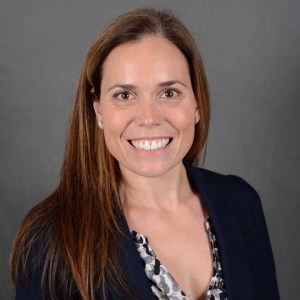
Dr. Marie-Eve Fecteau
University of Pennsylvania School of Veterinary Medicine
Session Description
Coming soon!
Speaker Bio
Dr. Marie-Eve Fecteau is a Professor of Farm Animal Medicine and Surgery in the Department of Clinical Studies-New Bolton Center, University of Pennsylvania School of Veterinary Medicine. Dr. Fecteau obtained her veterinary degree from the Université de Montréal, and following graduation, she completed a large animal rotating internship and a one-year lectureship in the bovine field service of the same institution. Dr. Fecteau then completed a residency in Large Animal Internal Medicine at the University of California-Davis, from which she holds diplomate status. In 2004, Dr. Fecteau joined the Faculty at the University of Pennsylvania School of Veterinary Medicine as a clinician-scientist and farm animal specialist. Dr. Fecteau’s research interests are centered on the study of paratuberculosis in cattle and other ruminants. With her collaborators at PennVet and at Penn Medicine, she has also investigated the disease similarities and possible links between Johne’s disease and Crohn’s disease.
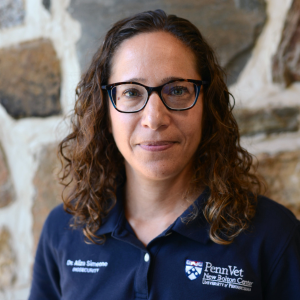
Aliza Simeone, VMD
University of Pennsylvania School of Veterinary Medicine
Session Description
Following a brief review of avian influenza and the development of the current U.S. outbreak of H5N1 HPAI in dairy cattle, we will discuss the current state of the outbreak, regulatory events and requirements related to HPAI in cattle and some critical action items for dairy producers and their veterinary team.
Speaker Bio
Following veterinary school at the University of Pennsylvania School of Veterinary Medicine, Aliza Simeone practiced as a large animal ambulatory veterinarian in southeastern Pennsylvania for three years before serving as the Pennsylvania Department of Agriculture Veterinary Medical Field Officer for southeastern Pennsylvania for seventeen years. In that position, she performed many prevention and response duties related to regulatory animal health diseases such as avian influenza and rabies.
In 2024, she was appointed Assistant Professor of Clinical Infectious Diseases and Biosecurity for New Bolton Center. In this new role, she manages biosecurity and infectious disease surveillance and control programs at New Bolton Center, provides community services through on-farm assessment of infectious disease protocols, advises during infectious disease outbreaks, and teaches about infectious disease and biosecurity within the veterinary school curriculum.
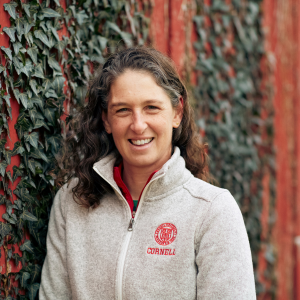
Elisha Frye, DVM, DACVPM
Cornell University College of Veterinary Medicine
Session Description
This lecture will review Salmonella Dublin, the host adapted Salmonella serovar in cattle. Examples of the typical clinical presentation in dairy calves will be shown. Antemortem diagnostic testing (blood culture) and postmortem testing (culture of the lung, liver, kidney, spleen and lymph nodes) will be discussed in detail. Sensitivity panels (Mean inhibitory concentration) will be interpreted. Finally, management tools, including surveillance and monitoring with the Salmonella Dublin ELISA (antibody test), will be discussed.
Speaker Bio
Dr. Elisha Frye graduated from the Cornell University College of Veterinary Medicine in 2010 and practiced mixed animal medicine in the Finger Lakes region of New York for 8 years. During that time, she focused on dairy cattle but also enjoyed equine and small animal work. In 2018, Elisha joined Veterinary Support Services at the Cornell Animal Health Diagnostic Center and passed the American College of Veterinary Preventive Medicine board exam in 2021. She spends most of her time as a diagnostician and consults with submitting veterinarians regarding sample collection, testing strategy, and result interpretation. She is also involved in research and the veterinary student curriculum. Currently her favorite infectious diseases are Salmonella Dublin, Epizootic Hemorrhagic Disease and Highly Pathogenic Avian Influenza.
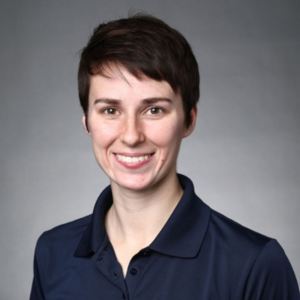
Dr. Ann DiPastina
University of Pennsylvania's New Bolton Center
Session Description
Production Medicine Programs for Small Ruminants
This session will be an overview of the common needs of the production small ruminant client. Topics of emphasis will include management of the periparturient ewe or doe, parasite management, and protocol development for recognizing and treating diseases on-farm.
Top 10 Things Cattle Vets Should Know About Small Ruminants
This session will highlight basic principles that are key to small ruminant practice including animal handling and restraint, performing a physical exam, common needs of the companion & production small ruminant, and common problems or conditions affecting small ruminants in general ambulatory practice. If you are a bovine practitioner looking to expand your practice to include small ruminants, this session aims to lay the foundation for you to make that transition a smooth one.
Speaker Bio
Dr. Ann DiPastina is a 2019 graduate of Michigan State University's College of Veterinary Medicine. Upon graduating, she completed an internship in Food Animal Medicine, Surgery, and Field Service at Colorado State University, then moved on to a private mixed animal practice in southwestern Montana. After completing a residency in the American Board of Veterinary Practitioners Food Animal track at the University of Pennsylvania's New Bolton Center in 2023, Dr. DiPastina joined the faculty at the New Bolton Center where she is currently an Assistant Professor of Clinical Food Animal Field Service.
Her major areas of clinical and research interest are small ruminant dairy production systems, herd health monitoring, and parasite management. She works closely with small ruminant production herds in Chester county to develop pasture rotation protocols to prevent endoparasitism.

John Currin, DVM, DABVP-Dairy
VA-MD College of Veterinary Medicine
Session Description
Coming soon!
Speaker Bio
Dr. Currin grew up on a small beef cattle farm in Southwest Virginia. He graduated from Virginia-Maryland Regional College of Veterinary Medicine in 1993. Following graduation he became an associate veterinarian in a mixed animal practice for 1 year, then became a partner in a large animal practice for 3 years. Dr. Currin then became a clinician at VA-MD Regional College of Veterinary Medicine for 24 years. He is currently the Associate Clinical Professor in Production Management Medicine and Extension Veterinarian and has been for the past 15 years. His interests include dairy production medicine, dairy records, dairy and reproduction, bovine respiratory disease complex, dairy nutrition, dairy management and bovine pharmacology, beef cattle production medicine, beef cattle reproduction, beef cattle nutrition, and beef cattle economics.
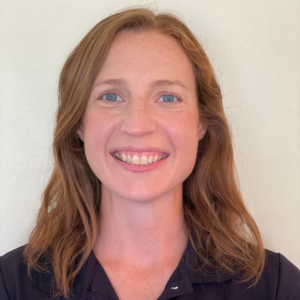
MJ Drake, Ph.D., VMD, DABVP
PennVet New Bolton Center
Session Description
Expand on the utility of the rectal linear ultrasound and learn how to incorporate fast, localized abdominal and thoracic ultrasonography into sick cow examinations on farm. Opportunities for calf health will also be discussed.
Speaker Bio
Dr. MJ Drake is an Assistant Professor of Food Animal Field Service at PennVet New Bolton Center. She grew up in Delaware and received a BS in Biochemistry & Molecular Biology from the University of Richmond. In college, she became enthralled with infectious diseases and went on to attend graduate school studying virology at the University of Pennsylvania. Her research investigated how viruses co-opt mammalian cells for their own replication. After completing her PhD in 2016, Dr. Drake continued her studies in veterinary medicine at PennVet, focusing on food animal medicine. She has been a large animal ambulatory practitioner since receiving her VMD in 2020. Dr. Drake is interested in the intersection of infectious diseases in food animal production systems and strives to improve the health of individual animals and as well as the overall herd in her daily work. In addition to her passion for dairy production medicine, Dr. Drake also enjoys diagnostic imaging and seeks opportunities to incorporate ultrasonography and radiography into patient workups whenever possible. In her free time, she enjoys gardening, playing ultimate frisbee, improving her pickleball skills, and spending time with her husband and their terrier, Toby.
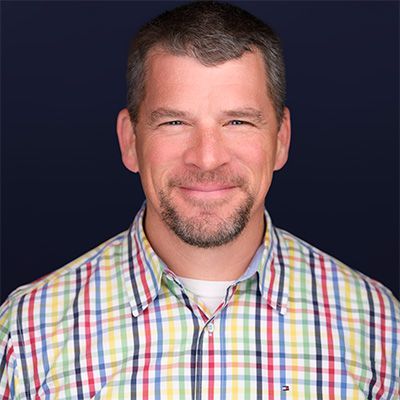
Andrew Holloway, DVM
Elanco
Session Description
This session will focus on the driving factors behind sustainability efforts, the dairy industry’s current state and desired state, the areas of intervention being considered, and avenues for dairymen to generate revenue.
Speaker Bio
Dr. Holloway was raised on a diversified family farm in Darlington, MD. He attended Virginia Tech from 1990 to 1998 where he acquired a BS and DVM. Dr. Holloway practiced large animal veterinary medicine in southeastern PA for 6 years. He has held several technical positions in the animal health industry and is currently responsible for the US Dairy Technical Service Team at Elanco Animal Health. His professional interests include calf and heifer health, nutrition and management, cow comfort and reproductive management, sustainable production agriculture, and finding new, innovative solutions to on-farm problems. Dr. Holloway currently lives with his wife, two daughters, and a plethora of various animal species in Darlington, MD.
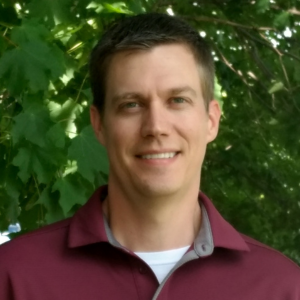
Trent Olson
ABS Global
Session Description
Today's dairy producer has the ability to decide the gender and breed of every calf born. Today's economics magnifies the impact of that decision whether a check or a $2,000+ expense awaits on her due date. Determining the right number of replacements while maximizing the profitability potential of the next generation all lies in your tweezers when you decide which straw to thaw.
Speaker Bio
Trent grew up on his family’s dairy farm in Minnesota. He earned his degree in Animal Science and Applied Economics from the University of Minnesota in 2005. Since that time, he has spent the last 20 years working at ABS Global in DeForest, Wisconsin, within the Product Development and Genetic Services teams. Throughout is time at ABS, he as worked in progeny testing of sires, data management, marketing, sire development, and leading a breeding business in California. In his current role, he focuses on economics analysis projects while building a genetic education platform and training capabilities for the company’s global business. Marrying a passion of economics and dairy genetics, he has had the opportunity to deliver genetic trainings and work with dairy farms in England, Australia, Mexico, Chile and Brazil while traveling for ABS Global. Olson enjoys working with young people in the dairy industry by teaching Dairy Economics at the University of Wisconsin-Madison-FISC and coaching the UW-Madison dairy cattle judging teams in the fall. In his free time, Trent operates a grain farm focusing on soybeans and corn production with his wife Sara and 2 sons.
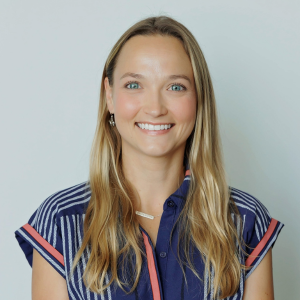
Rebecca Klopp, Ph.D.
Purina Animal Health
Session Description
This presentation will focus on troubleshooting calf problems on-farm and helping dairy farmers improve their calf management.
Speaker Bio
Becca Klopp currently resides in Carlisle, Pennsylvania. She received her bachelor’s degree from Penn State in Animal Science. She did her master’s at Clemson University in dairy calf nutrition and management, specifically how milk replacer feeding rates and weaning strategies impact calf growth. Then she went on to do her Ph.D. at Purdue University in dairy calf nutrition and health, focusing on how nutrition affects the innate and adaptive immune systems. From there she accepted a position as a calf and heifer technical specialist with Purina Animal Nutrition which is where she is currently. Outside of work she and her husband run about 20 head of Angus cattle. When she’s not working or at the farm, she enjoys reading, being with friends and family, and snuggling with her two cats, Anna and Elsa.
